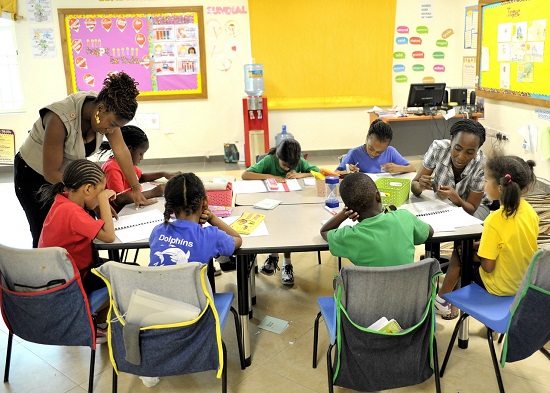“This may sound strange, but your child needs some boredom. It is a very important aspect of a child’s development and it should not be avoided completely. What is required is a healthy balance of activities and boredom,” says parenting coach and founder, Le Poshe School, Ikoyi, Mrs. Ronke Adeniyi.
After visiting a family whose kids complained of being bored after all the efforts their parents made to ensure their holiday is filled with activities, Mrs. Adeniyi began to educate parents that boredom is not all bad.
“The lives of children should not be filled solely with excitement or amusement. The typical 21st century child is happy to be glued to screens of different devices, go on several trips to entertain themselves then stuff their faces with junk food before resting late at night and waking up at odd hours in the afternoon. This should not be the case if we want to raise responsible citizens who are empathetic and add value at home and to society,” she said.
Adeniyi observed that boredom allows children to use their imagination and creativity provided the environment is conducive and there are available resources and freedom to explore. “Think about a young child with a pair of safety scissors, marker pens and loads of cardboard and paper. Can you possibly predict the outcome when the child is done?” she asked, adding: “If several children are presented with the same opportunity, the results and inventions will certainly be varied depending on how creative the child is and how much of the imagination the children have tapped into.”
To the school proprietor, boredom helps children to explore and be creative. “Give them freedom to explore. Arts, engineering, public speaking, singing and writing all fall under creativity.
“We must try not to use food and devices to fill their idle time. Often times, you hear of parents stocking up the cupboards and fridges with food and treats so the children can be engaged with these. They subsequently overindulge which results in weight gain, health challenges and an increased lack of self-control and regulation.
“It is a noisy world out there – cars honking, generators pounding everywhere and even in the online space, there is so much chaos and activities. Boredom helps children connect with themselves and be self-aware. It brings them peace and calm away from the noisy world they find themselves,” she said.
Adeniyi also urged parents to encourage the children to have quiet time, prayer time and/or meditation. “They get to know more about themselves this way. Boredom gives children and even adults the opportunity to love themselves more and subsequently improve their self-worth, esteem and confidence. Children do not need to be with other people or devices to be happy.”
She advised that as much as parents try to fill their days with activities, they must also allow time for introspection, imagination and improvement of mental health. “A child’s day should not be filled with extended periods of boredom so they do not pick up negative and disempowering habits, but it should be built into each day. It boosts problem-solving skills and personal productivity, which are also critical 21st-century skills.
“Boredom connects children to the world and humanity; they do not have to think they have to be served or entertained at all times which, in itself, will raise children that do not feel entitled to everything. These children will grow up with empathy if they begin to understand that the world is not solely about them and their needs.
“Boredom is an important aspect of a child’s day as it supports their personal, social and emotional development. It helps children find and connect to themselves and the world around them,” she noted.



